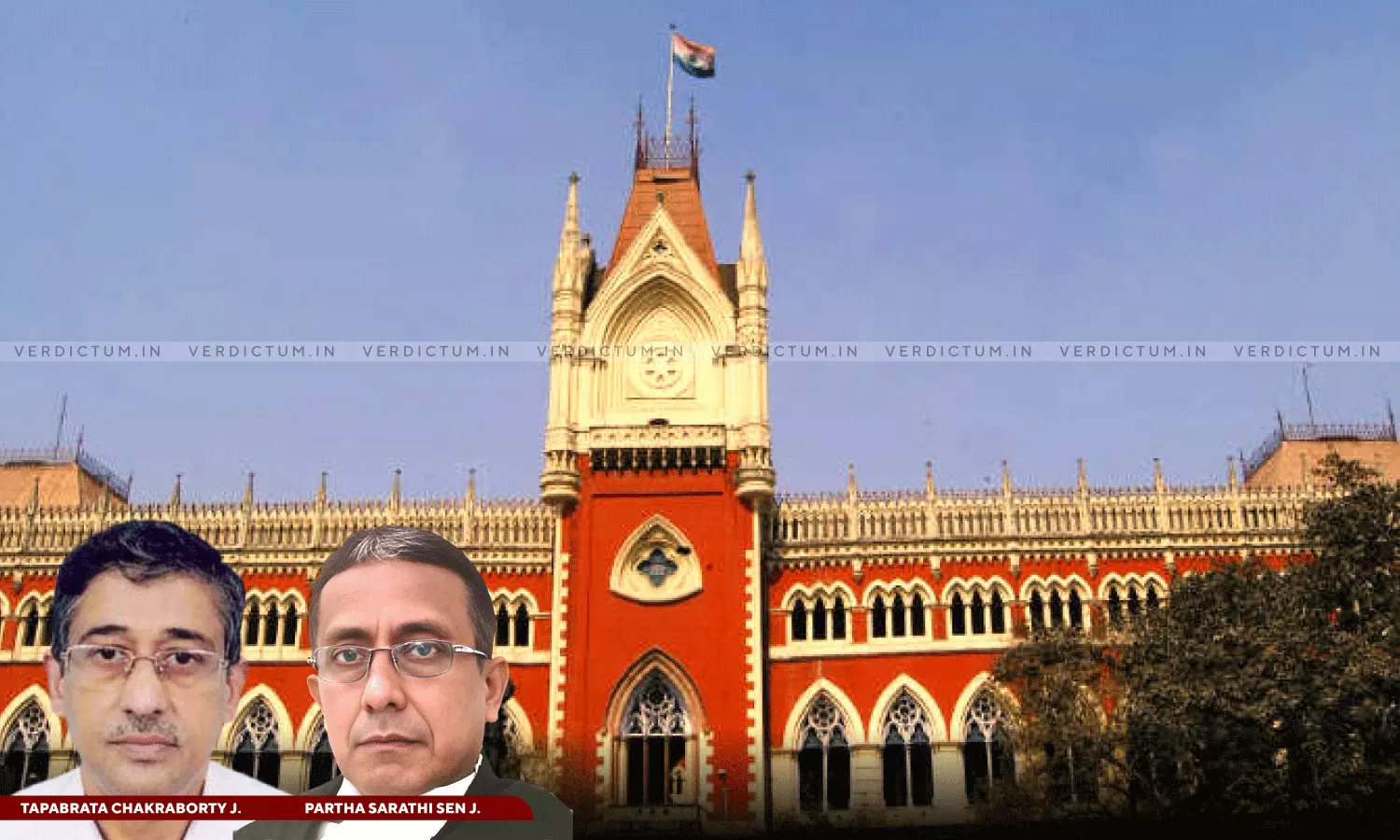
Direction To Pay Back Wages Is Not Automatic Consequent Upon Declaration Of Dismissal Order As Bad in Law; Such Discretion Is To Be Exercised Reasonably: Calcutta HC
 |
|The Calcutta High Court ruled that the direction to pay back wages in its entirety is not automatic consequent upon the declaration of dismissal order as bad in law. The concept of discretion is in-built and the same is to be exercised reasonably and judicially.
The Appeal before the High Court was filed against the Order of the Single Bench allowing the writ petition but declining to pass an order for payment of back wages to a former Assistant Sub-Inspector of RPF.
The Division Bench comprising Justice Tapabrata Chakraborty and Justice Partha Sarathi Sen held, “It is no more res integra that direction towards payment of back wages is a discretionary power which has to be exercised by a court keeping in mind the facts in their entirety and neither a strait jacket formula nor a rule of universal application can be laid down in such cases.”
Advocate Achin Majumdar represented the Writ Petitioner/Appellant while Advocate Anirban Mitra represented the Respondent/UOI.
The writ petitioner/appellant, while posted as an Assistant Sub-Inspector of RPF post, Howrah I, goods-shed was arrested in the year 2009 in connection with a criminal case, under Sections 304B/497/498A IPC. The writ petitioner/appellant was released on bail and later placed on suspension. The writ petitioner/appellant was awarded the punishment of compulsory retirement and his statutory appeal was rejected. Challenging the finding of the disciplinary authority as well as the appellate authority, the writ petitioner/appellant filed the writ petition which was disposed of by the impugned judgment.
The Bench noted that during the pendency of the writ petition , the writ petitioner/appellant had crossed his actual date of superannuation.
The Appellant’s Counsel contended that the Single Bench failed to visualize that the writ petitioner/appellant was not at all responsible on account of long pendency of the litigation.It was also argued that the Single Bench for no reason whatsoever failed to observe that there couldn’t be any embargo in granting payment of back wages to the writ petitioner/appellant especially when the writ petitioner/appellant was suspended and/or charge sheeted for no fault of his own.
Referring to the judgment of the Apex Court in Deepali Gundu Surwase vs. Kranti Junior Adhyapak Mahavidyalaya (D.ED) and Ors. reported in (2013), the Bench opined that in the reported decision, the Apex Court in no uncertain terms had held that an employee/workman whose service has been terminated and who is desirous of taking back wages is mandatorily required to either plead or at least make a statement before the adjudicating authority or the court of first instance that he was not gainfully employed or was employed on lesser wages elsewhere.
The High Court observed that the Single Bench rightly noticed that within the four corners of the writ petition there was no whisper at all by the writ petitioner that since the day of his termination from service till the date of imposition of his punishment or even at the time of filing of the writ petition he was not employed anywhere gainfully or on lesser wages. In the writ petition no specific prayer was made by the writ petitioner for the grant of back wages.
The Bench thus held, “On perusal of the entire materials as placed before us and on consideration of the reported decision of the Hon’ble Apex Court as cited from the side of the Bar it appears to us that the legal position is fairly settled by a catena of decisions that direction to pay back wages in its entirety is not an automatic consequent upon the declaration of dismissal order bad in law. The concept of discretion is in-built in such exercise. The court is required to exercise such discretion reasonably and judicially keeping in view the facts and circumstances of the case. Each case, of course, would depend on its own fact.”
It was further noticed by the High Court that the writ petitioner was served with the letter of suspension in the year 2010 but the petitioner made no venture to challenge the said letter of suspension in any court of law. Subsequently on account of alleged violation of the conditions of the suspension notice charge sheet was submitted against him. The writ petitioner/appellant again did not challenge such charge sheet as well as charge as framed against him and on the contrary he participated in the disciplinary proceeding though in the said disciplinary proceeding as well as in the appellate proceeding he raised the point of legality and correctness of the charge as framed against him. Moreover, during the pendency of the writ petition the petitioner made no endeavour for early disposal of the instant petition.
Considering the fact that the writ petitioner/ appellant miserably failed to produce any material on record to prove that during the entire period of his suspension, he remained unemployed, the Bench wasn’t inclined to exercise its discretion in favour of the appellant.
Thus, dismissing the instant appeal, the Bench upheld the impugned judgment.
Cause Title: Sri Man Mohan Kumar Shahu Vs Union of India and Ors (Case No.: MAT 954 of 2024)
Appearance:
Writ Petitioner/Appellant: Advocates Achin Majumdar, Ananya Neogi
Respondent/UOI: Advocate Anirban Mitra